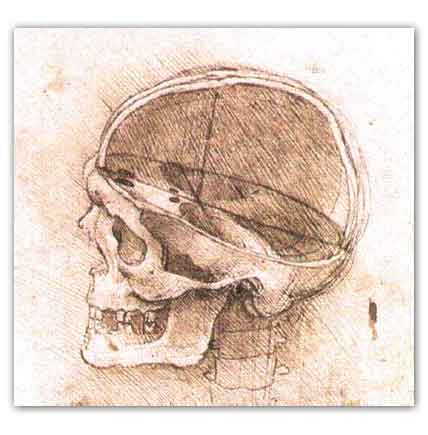|
A new study finds that a noninvasive electromagnetic
brain stimulation technique helps obese people lose
weight, partly by changing the composition of their
intestinal bacteria—the so-called gut microbiota.

This study expands on the researchers’ previous
finding that dTMS reduced food cravings and induced
weight loss in obese individuals.
Unlike deep brain stimulation, dTMS does not need an
operation or implantation of electrodes.
Instead, an electromagnetic coil is placed on the
scalp and sends magnetic pulses to stimulate
specific deep regions of the brain.
Currently approved in the U.S. for treating major
depression, dTMS is being studied in some countries
for the treatment of other neuropsychiatric
disorders, especially addiction.
“We need new safe and effective therapies for
obesity,” said principal investigator Livio Luzi,
M.D., professor and head of endocrinology at the
IRCCS Policlinico San Donato and the University of
Milan in Milan, Italy.
An underlying cause of obesity may be an impaired
gut microbiota composition, an imbalance in the
complex mix of beneficial and harmful microorganisms
that inhabit the digestive tract.
Luzi said scientists now know that an impaired gut
microbiota can alter the brain’s signals for
appetite and satiety, or fullness.
He and his co-workers studied whether dTMS could
improve the gut microbiota composition in obese
persons and, if so, by what underlying mechanisms.
In their study, funded by the Italian Ministry of
Health, the investigators recruited three men and 11
women, ages 22 to 65, with obesity as shown by a
body mass index (BMI) of 30 to 45 kg/m2.
They randomly assigned the study subjects to two
groups for five weeks to receive 15 sessions—three
times per week—of either dTMS (to the insula and
prefrontal cortex deep in the brain) or a sham
stimulation as a control. Before and at the end of
treatment, subjects provided stool samples for
microbiota analysis.
The research team also measured blood levels of
glucose (sugar), insulin, pituitary gland hormones
and neurotransmitters such as norepinephrine.
Pituitary hormones play a key role in regulating
appetite, and recent research shows that
norepinephrine and other neurotransmitters affect
microbiota composition, Luzi said.
After five weeks of treatment, subjects receiving
dTMS lost more than 3 percent of their body weight
and more than 4 percent of their fat—significantly
more than controls did, Luzi reported.
Results of the fecal analysis demonstrated that,
after five weeks, dTMS-treated subjects had greatly
increased quantities of several beneficial bacterial
species with anti-inflammatory properties, such as
are found in healthy people.
The control group, however, had no clinically
relevant alterations in their microbiota
composition, Luzi said.
He also reported that changes in the abundance of
other bacterial species correlated with improvement
of metabolic and hormonal parameters, including
glucose, insulin, several pituitary hormones and
norepinephrine.
“These changes suggest a beneficial effect of dTMS
on both weight loss and change in microbiota
composition,” Luzi said. “Our research shows the
innovative ability of dTMS in exerting anti-obesity
effects through alteration of the gut-brain axis.”
For more information
Magnetic brain stimulation causes weight loss by
making gut bacteria healthier
Link...
https://www.endocrine.org/.
È del Policlinico San Donato lo studio
sull’efficacia della stimolazione magnetica
transcranica profonda per il controllo di sazietà e
riduzione del peso negli obesi
Link...
MDN |